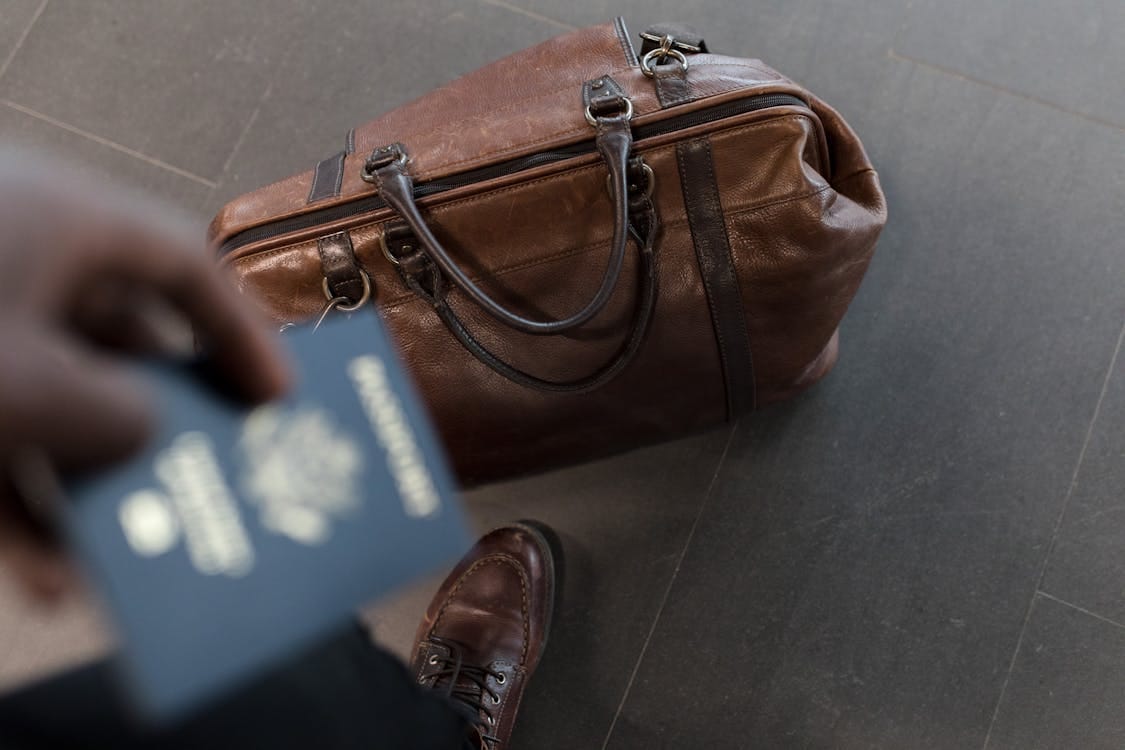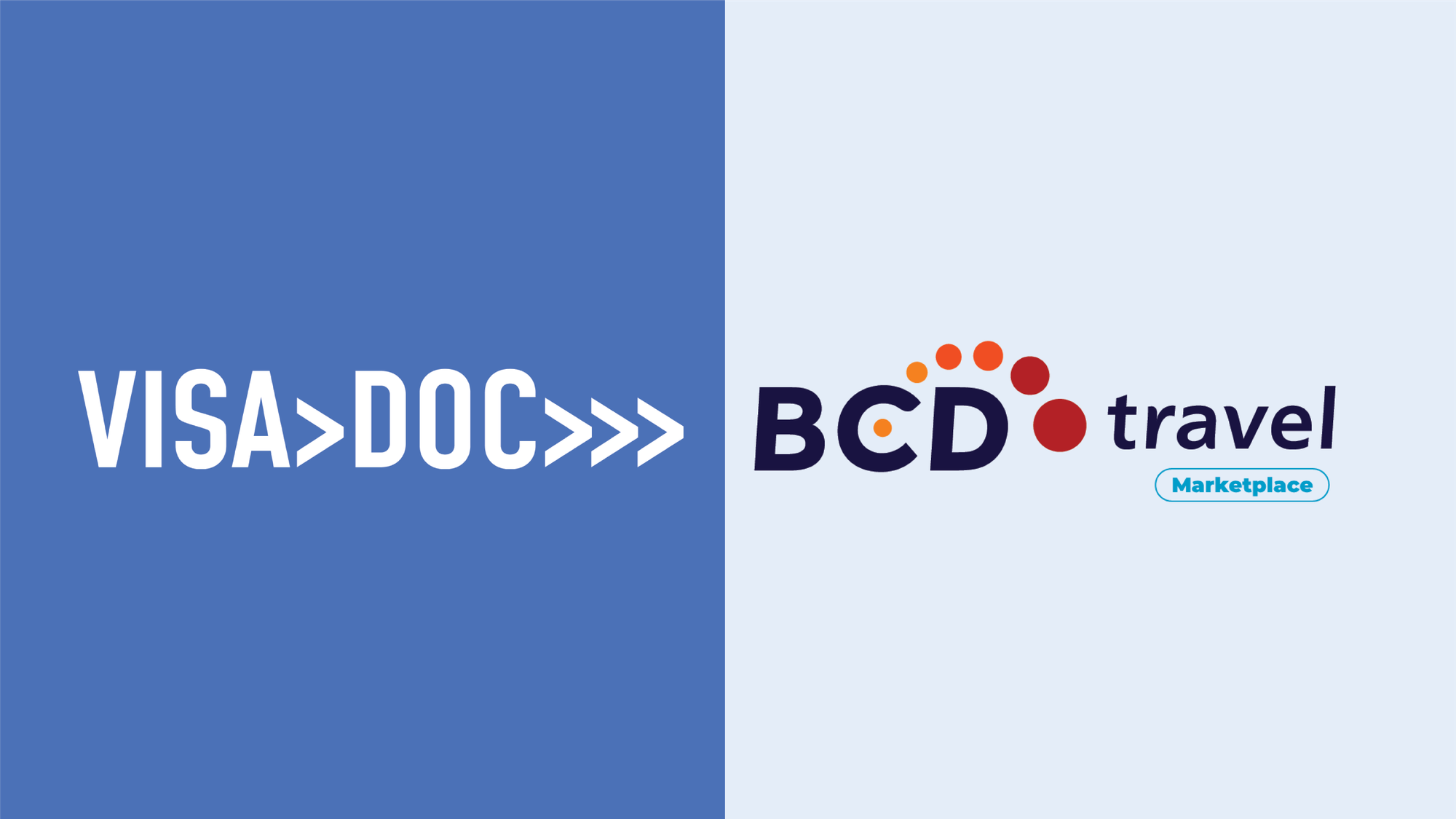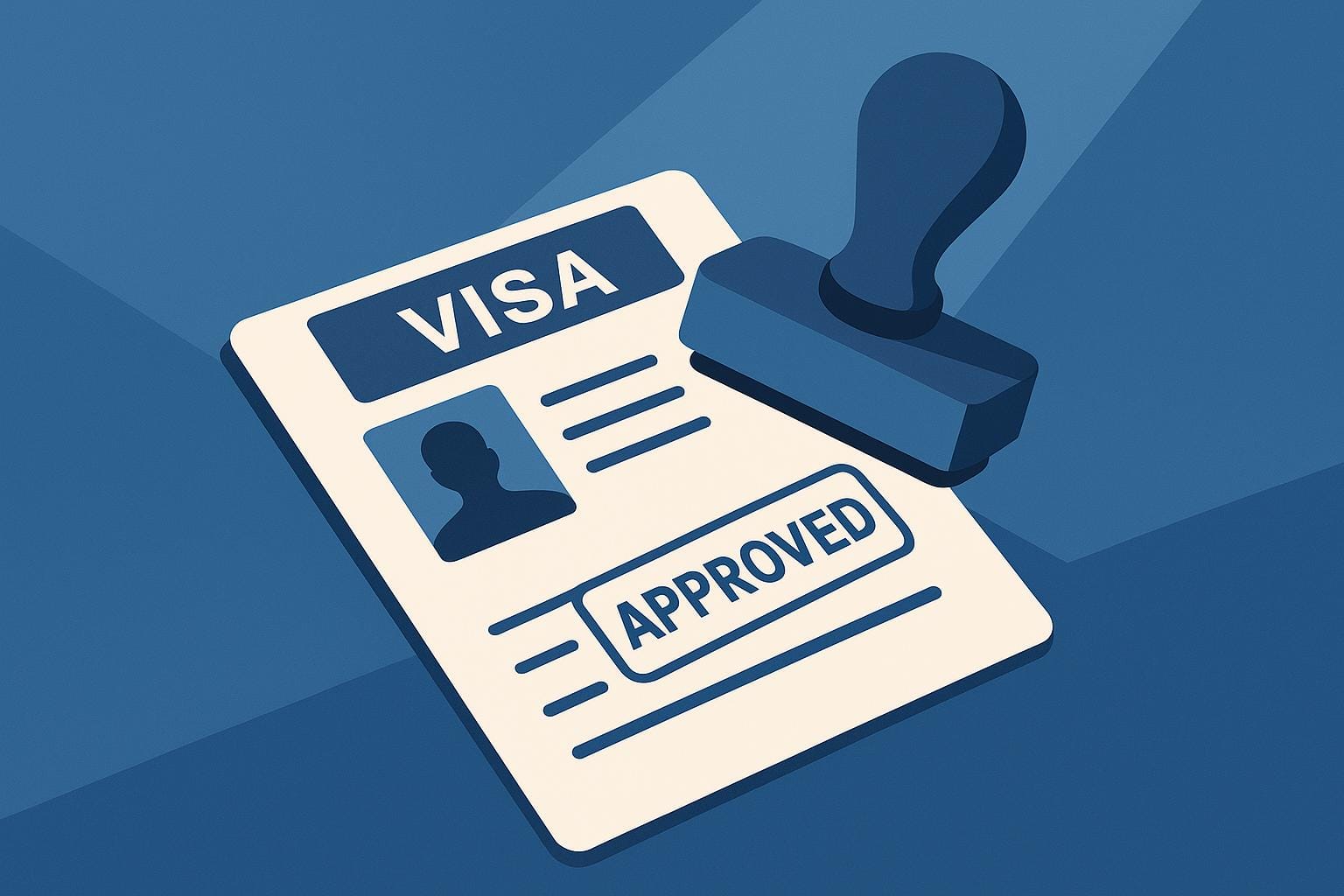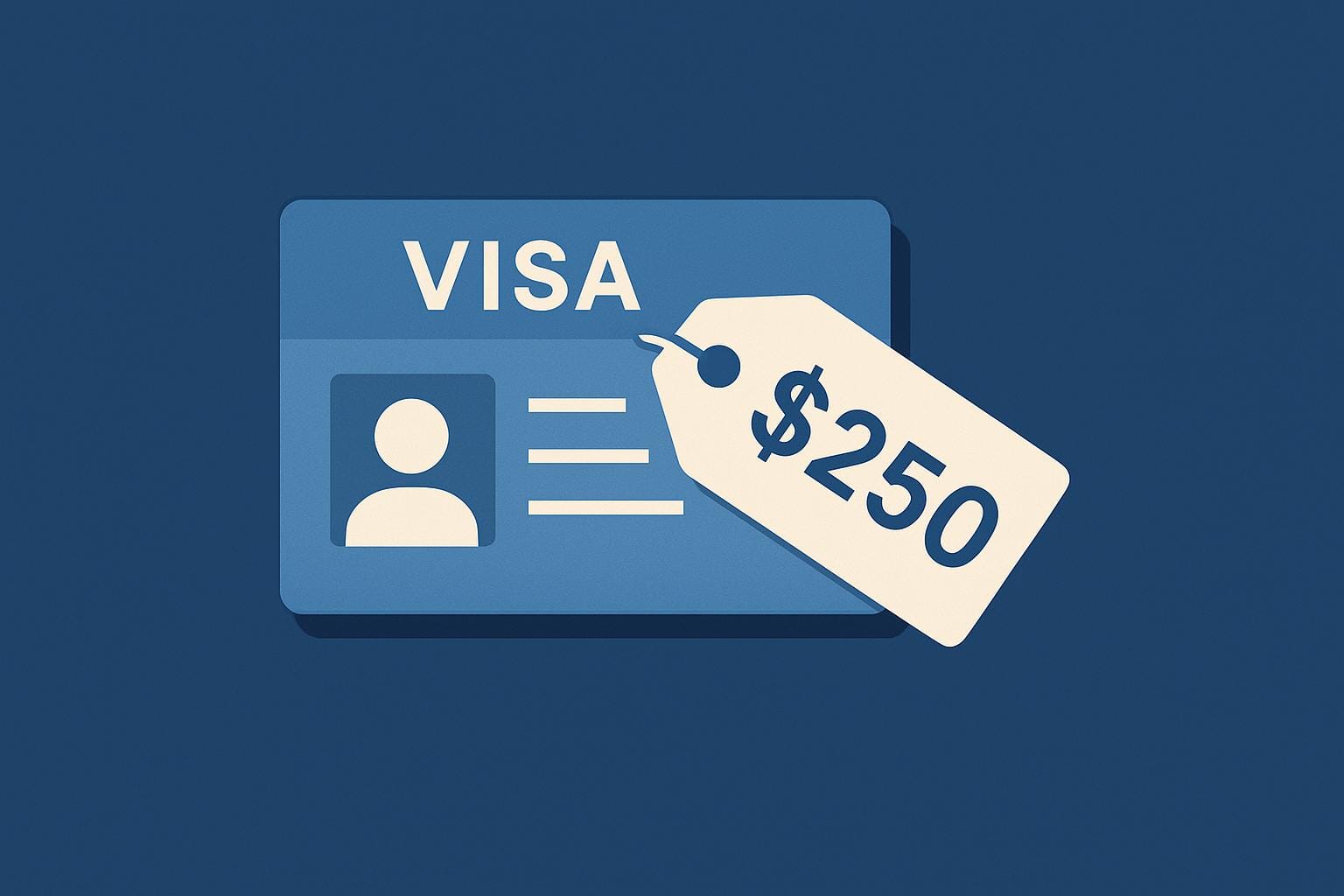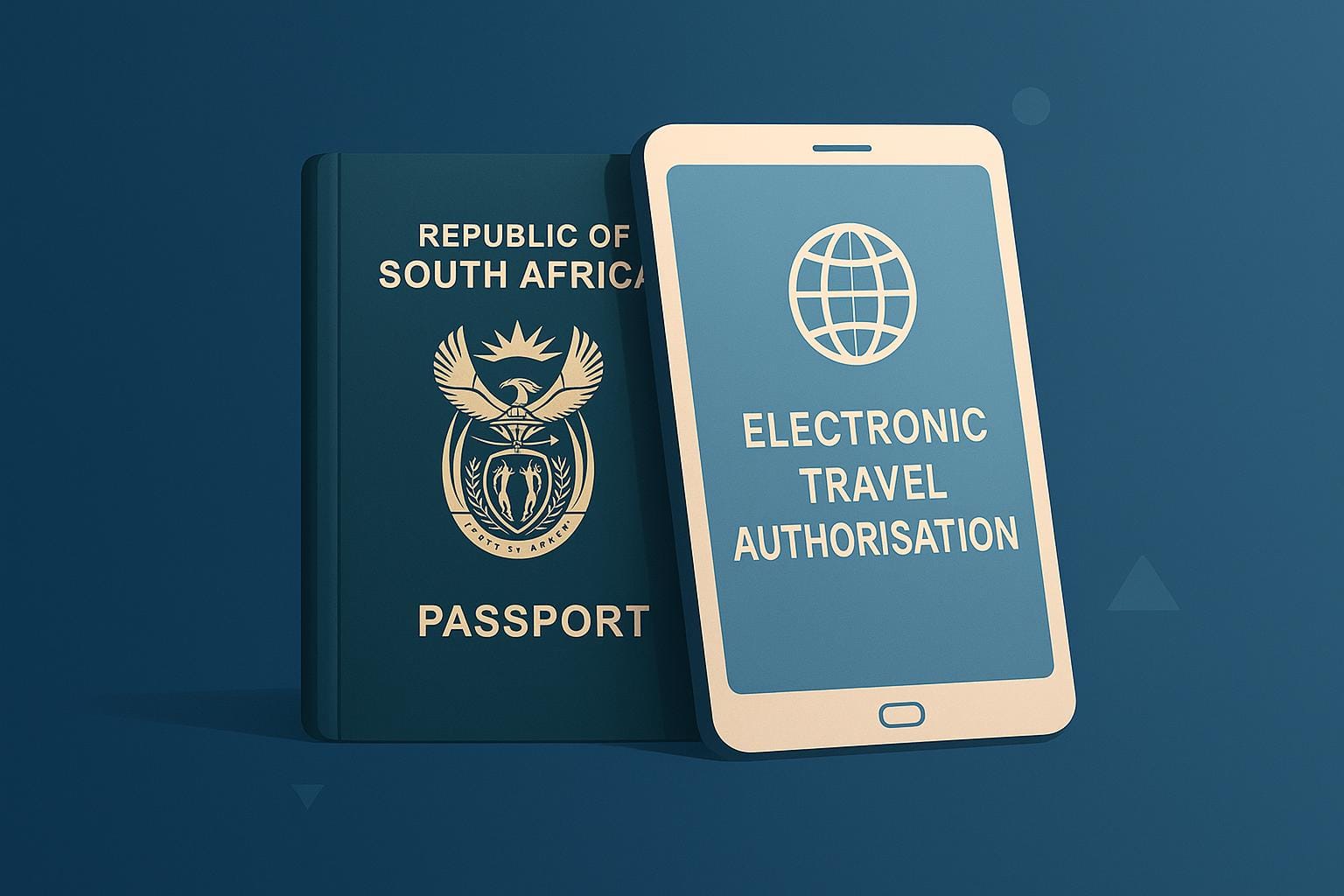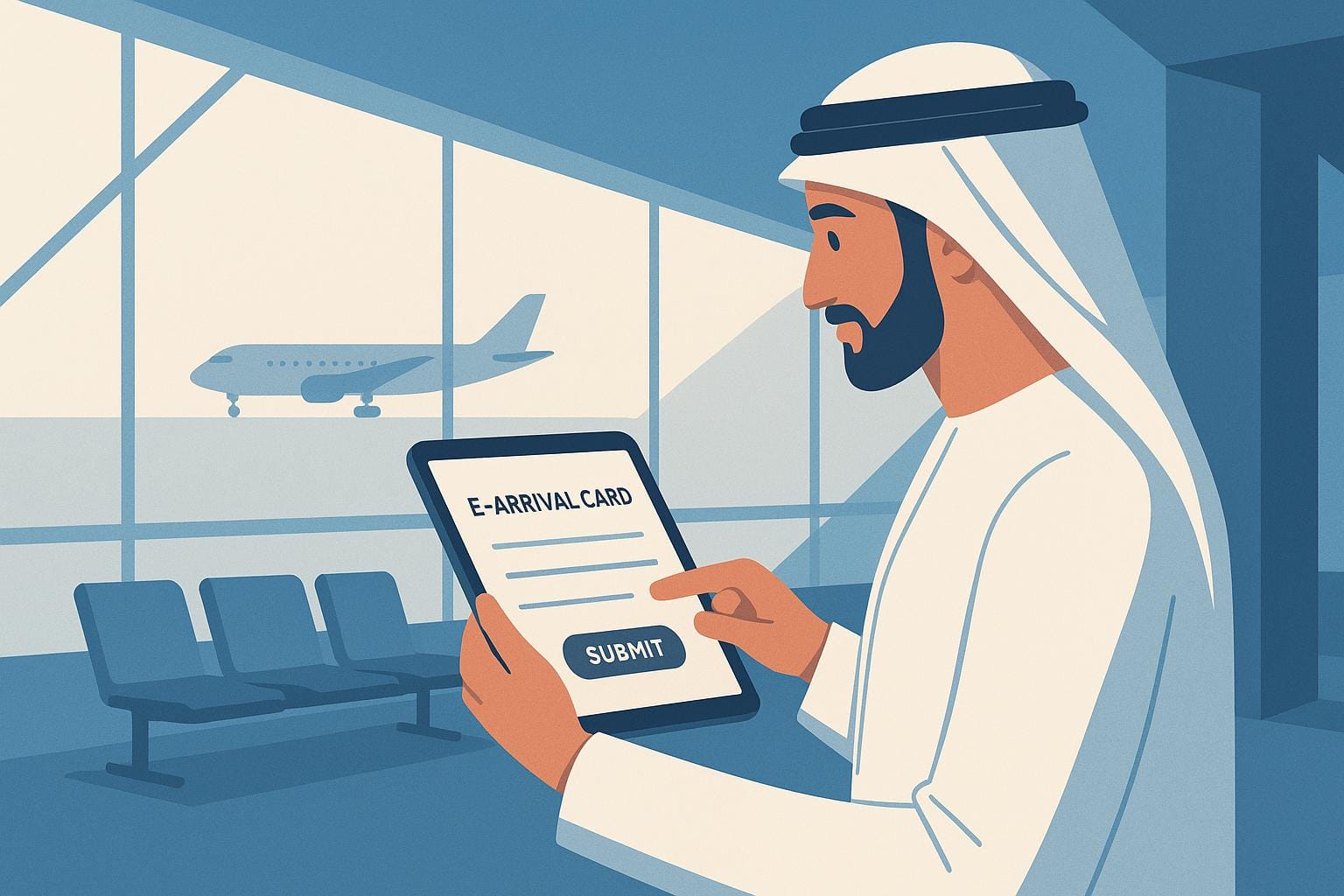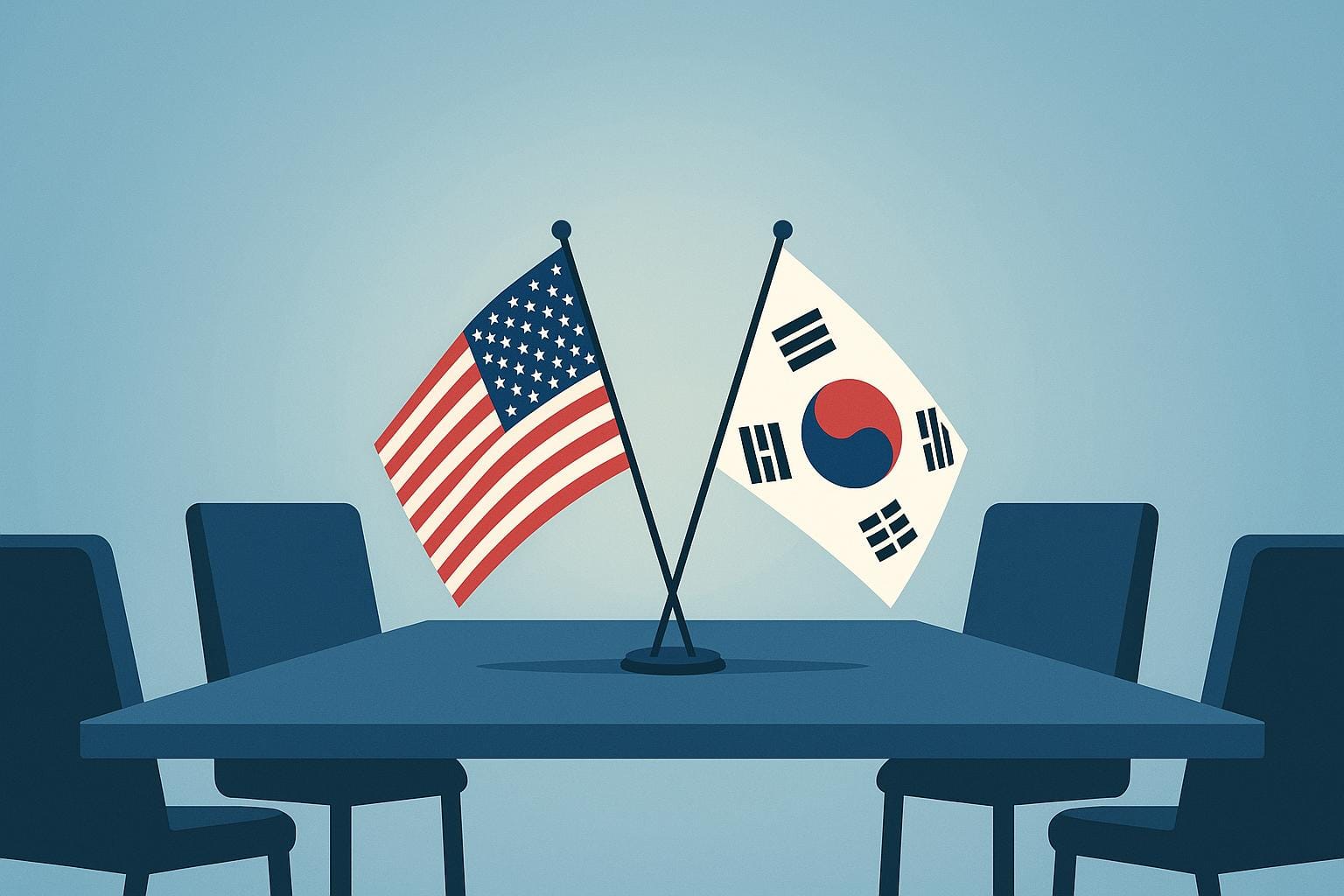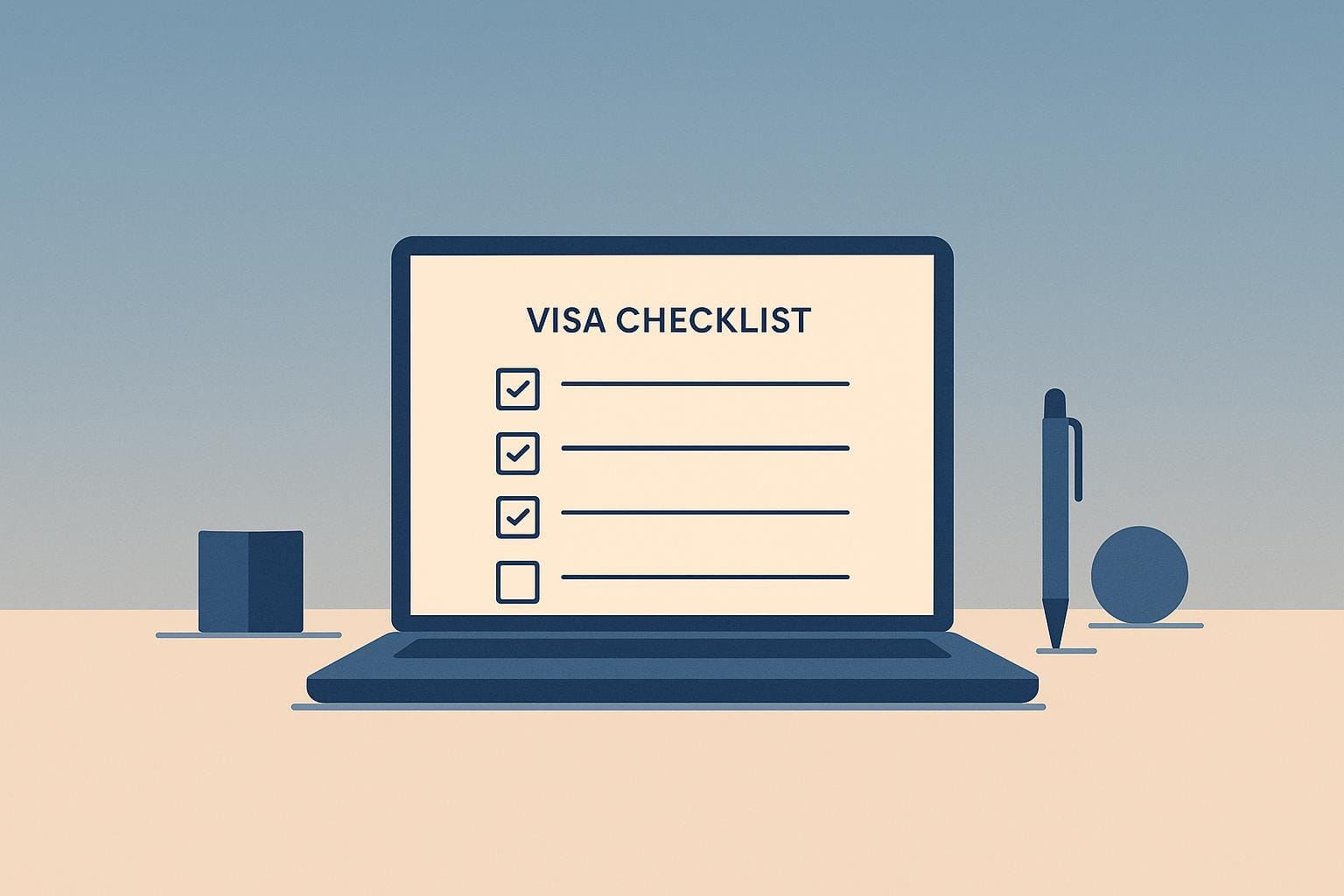Avoid costly fines and travel disruptions with a visa-compliant corporate travel policy. Mismanaging visas can lead to severe penalties, like Infosys's £26.8 million fine or £272 million in tax liabilities for Bosch. Here's how to integrate visa compliance into your travel policy:
- Approval Steps: Include visa checks at every stage - pre-booking, documentation, and pre-departure.
- Clear Rules: Define activities allowed under specific visa types (e.g., meetings, training, remote work).
- Technology Tools: Use AI systems like VisaDoc for automated visa tracking, error checks, and real-time updates.
- Employee Training: Teach staff about visa requirements, deadlines, and emergency handling.
- Centralised Systems: Link HR and travel platforms for streamlined workflows and compliance monitoring.
Key Tip: Automate notifications for visa expiries, passport renewals, and application updates to avoid last-minute issues. A robust policy ensures smooth global operations, protects employees, and prevents financial risks.
Key Components of Visa-Compliant Travel Policies
Incorporating visa compliance into your travel policy helps protect both your business and employees during international trips.
Setting Up Travel Approval Steps
Ensure visa verification is part of every approval stage:
- Pre-booking: Confirm visa eligibility (handled by the travel manager or HR).
- Documentation: Check passport validity (responsibility of the employee and HR).
- Final approval: Conduct a compliance review (managed by legal or compliance teams).
- Pre-departure: Verify all required documents are complete (overseen by the travel coordinator).
Visa Rules and Restrictions
Provide clear guidelines on permitted activities under specific visa types. These might include attending business meetings, participating in training sessions, engaging with clients, limits on remote work, and maximum stay durations.
Clear Roles and Requirements
Defining responsibilities ensures smooth visa management:
- Employees: Must adhere to visa deadlines and coordinate with HR as needed.
- Organisations: Should offer support through visa specialists and assistance with required documents.
- Departments: Teams like finance, HR, legal, and IT must work together to maintain compliance.
Host the policy on a centralised platform, such as the company intranet, and keep it updated. Establish clear communication channels to ensure everyone stays informed and compliant.
Next, we’ll look at how technology can simplify visa management even further.
Using Technology for Visa Management
Modern technology simplifies visa compliance by automating repetitive tasks. Digital tools help organisations keep better track of their visa processes, ensuring smoother operations.
AI Tools in Visa Processing
Artificial intelligence has reshaped how businesses manage visa documentation and verification. For example, VisaDoc's AI-powered system allows organisations to:
- Automatically validate passport and visa documents
- Identify potential compliance issues before submission
- Minimise application errors with smart form checks
- Provide accurate estimates for processing times
- Generate necessary supporting documents
This technology can cut visa workflow processing times by up to 90%, all while maintaining compliance standards. When combined with HR systems, these tools further improve efficiency.
Connecting HR and Travel Tools
Linking HR systems with travel management platforms creates a more efficient visa processing workflow. Some advantages include:
- Centralised employee information and approval processes
- Real-time tracking of visa statuses
- Easier expense management
- Unified reporting capabilities
To fully benefit from these integrations, it's crucial to train your HR team on the new tools. Clear operating procedures and best practice guides can help ensure smooth adoption. Additionally, proactive communication systems can keep everyone informed throughout the process.
Automated Visa Notifications
Automated alerts can be set up for:
- Visa expiration reminders
- Passport renewal alerts
- Updates on application statuses
- Changes in travel requirements
- Deadlines for submitting documents
These alerts provide real-time updates for both employees and management, ensuring transparency. By staying ahead of deadlines, organisations can avoid last-minute issues and reduce the risk of non-compliance.
| Notification Type | Recipient | Timing |
|---|---|---|
| Visa Expiry | Employee & HR | 90, 60, 30 days before |
| Passport Expiration | Employee & HR | 6 months before |
| Application Status | Employee & Travel Manager | Real-time |
| Document Receipt | All Stakeholders | Upon submission |
| Dispatch Confirmation | All Stakeholders | When sent |
Visa Compliance Tips for Business Travel
Ensuring visa compliance is crucial to avoid delays and legal complications. Here’s how to stay on top of it for smooth business travel.
Travel Preparation Checklist
Create a pre-travel checklist to confirm all documents are in order and submitted on time.
| Timeline | Required Actions | Supporting Documents |
|---|---|---|
| 90 days before | Confirm passport validity and identify the visa type | Valid passport, business-related documents |
| 60 days before | Submit visa application and gather required papers | Birth certificate, marriage certificate, diplomas, passport photos |
| 30 days before | Check entry clearance and prepare document copies | Digital and physical copies of all documents |
| 7 days before | Final document review and confirm travel approval | Travel insurance, accommodation confirmation |
To streamline the process, keep digital copies of all documents on file while ensuring employees also carry physical versions during their trip.
Staff Visa Training
Regular training sessions help employees stay compliant. Such programmes can include:
- Selecting the appropriate visa for the trip’s purpose
- Understanding document submission requirements and deadlines
- Familiarity with country-specific entry rules
- Handling visa-related emergencies
- Establishing clear communication with immigration contacts
Having an internal immigration contact ensures consistent guidance and acts as a reliable resource for any visa-related concerns. For more complex cases, external visa experts can provide the necessary support.
Working with Visa Experts
Technology simplifies routine visa applications, but expert advice is invaluable for complicated travel plans. For multi-country business trips, experts can help prioritise visa submissions and assess the benefits of longer-duration visas.
When planning such trips, it's important to consider the sequence of visa applications, as some countries may not accept visas from others. Additionally, organisations should weigh the costs of extended visas against the duration and scope of their projects.
Results: Improving Visa Management with VisaDoc
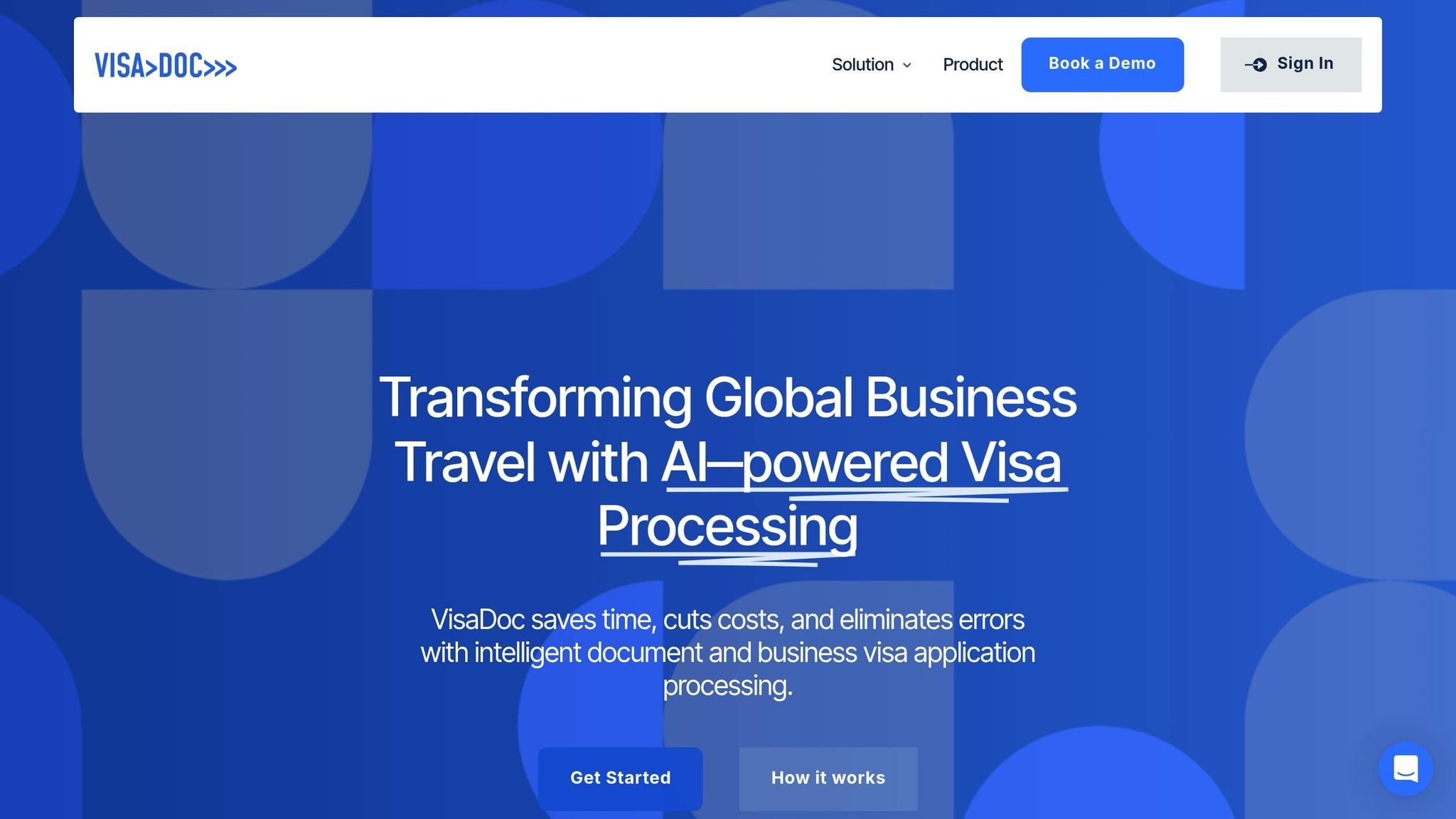
VisaDoc simplifies international business travel with its visa-compliant travel policy, making life easier for HR and travel teams. Its features help maintain compliance while saving time and money. Here’s how VisaDoc improves business travel operations:
Time and Cost Savings
VisaDoc’s AI-powered verification system identifies errors before submission, reducing delays and cutting down on administrative work. By bringing all visa-related information and documents into one place, organisations speed up processing times and lower operational expenses.
Better Compliance Management
The platform ensures organisations stay on top of compliance requirements with automated tracking and notifications. Key features include:
- Instant updates on regulatory changes
- Automated tracking of visa renewals and expirations
- Standardised application processes
- Centralised storage for all documents
Smooth Integration with Existing Systems
VisaDoc connects effortlessly with HR and travel management systems. It automates data transfer, syncs approval workflows, and consolidates document storage. This integration not only simplifies data handling but also ensures the travel policy runs smoothly from start to finish.
Conclusion: Creating an Effective Travel Policy
A well-structured travel policy with visa compliance built in is crucial for companies operating internationally. By combining clear guidelines with smart tools, businesses can minimise risks and ensure smooth global mobility.
A strong travel policy strikes a balance between compliance and practicality, providing a consistent framework that aligns with company objectives while managing costs and meeting duty of care responsibilities.
To make your travel policy as effective as possible, focus on these three areas:
- Set Clear Goals: Define specific aims for your travel programme, such as reducing costs, ensuring compliance, and improving traveller experience.
- Make It Accessible: Ensure all employees can easily access the policy, preferably through digital platforms.
- Review Regularly: Continuously assess how well the policy is working and adjust it to meet evolving business needs.
VisaDoc’s automated tools simplify these tasks by offering real-time updates, centralised document handling, and easy integration with HR systems. This not only ensures compliance but also reduces admin work, allowing organisations to concentrate on their core goals.



